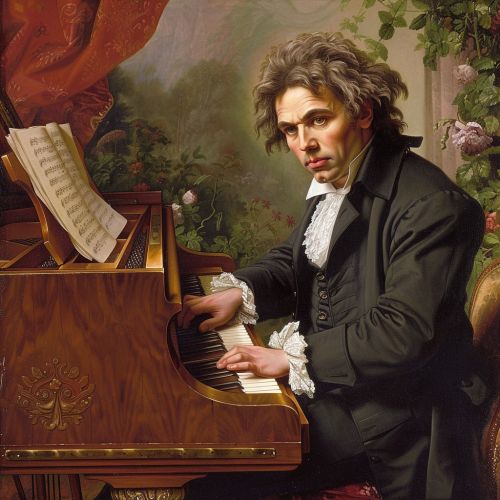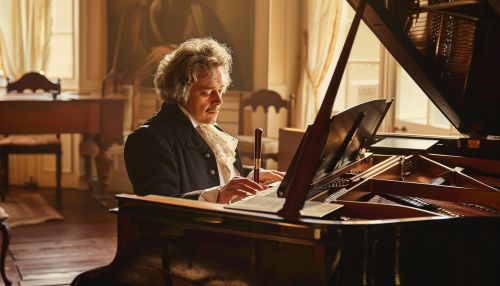Ludwig van Beethoven
Early Life
Ludwig van Beethoven was born in Bonn, then the capital of the Electorate of Cologne and part of the Holy Roman Empire, on 17 December 1770. He was the eldest surviving child of Johann van Beethoven (1740–1792), a musician at the court of Bonn, and Maria Magdalena Keverich (1746–1787). Beethoven's talent for music was evident at an early age, and his father, a harsh and demanding teacher, vigorously and rigorously trained him to be a musical prodigy.
Musical Education
Beethoven's first music teacher was his father, who was a tenor in the service of the Elector of Cologne. He also studied under several local organists and court musicians. In 1779, Beethoven began his formal study with Christian Gottlob Neefe, who was the Court's Organist. Under Neefe's guidance, Beethoven published his first composition, a set of nine variations, in 1782.
Move to Vienna
In 1787, Beethoven moved to Vienna, the capital of Austria and the musical capital of Europe, to study with Wolfgang Amadeus Mozart. However, his plans were interrupted when his mother fell ill and he had to return to Bonn. After his mother's death, Beethoven returned to Vienna in 1792 to study with Joseph Haydn, and later with other leading musicians of the time, including Antonio Salieri and Johann Albrechtsberger.
Early Career
In Vienna, Beethoven made a name for himself as a pianist and composer, gaining the patronage of several wealthy Viennese nobles. He composed in several musical genres, including symphonies, string quartets, piano sonatas, and an opera. His early works are often marked by their expressive quality and innovative use of form.


Deafness and Late Period
Around 1796, Beethoven began to lose his hearing, a condition that worsened over the years and profoundly affected his life and work. Despite his increasing deafness, Beethoven continued to compose, conduct, and perform, even after he was completely deaf. His late period, from 1812 to his death in 1827, is marked by works of profound depth and complexity, including his Ninth Symphony, the late string quartets, and the Missa Solemnis.
Legacy
Beethoven is widely regarded as one of the greatest composers in the history of music. His innovative compositions combined vocals and instruments, widening the scope of sonata, symphony, concerto, and quartet. He is the crucial transitional figure connecting the Classical and Romantic ages of Western music.
